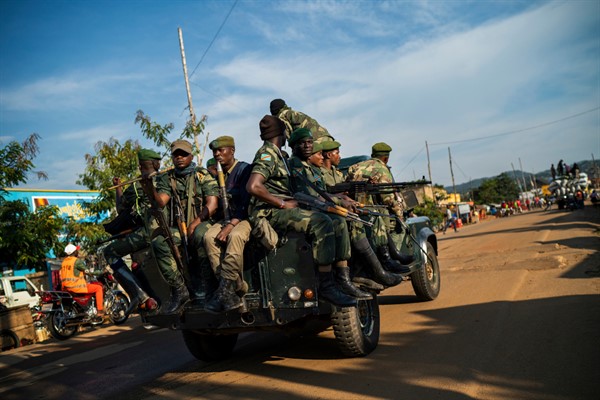In early May, in a televised address, the Democratic Republic of Congo’s president, Felix Tshisekedi, declared martial law in North Kivu and Ituri, two provinces on the country’s eastern border with Uganda and Rwanda, and placed them under military rule. In justifying this draconian measure, Tshisekedi invoked the regular mass killings in the region, which have left more than 1,000 people dead since 2019 and have generally been ascribed to one local militant group: the Allied Democratic Forces. Days later, a delegation from the Ugandan army arrived in Beni to set up a coordination center for a joint offensive with the Congolese army against the ADF.
Tshisekedi’s declaration followed a shift in U.S. strategy earlier in the spring. In a March 2020 statement by State Department spokesperson Ned Price, the U.S. announced that it now considers the ADF a “foreign terrorist organization” and has added further sanctions on top of the ones first placed on the group in 2014. The move, Price said, constituted “decisive action against violent extremism” targeting a group that “is responsible for many of the terrorist attacks throughout eastern DRC.” Even more significantly, Price’s statement gave a new name to the ADF, which the U.S. now calls “the Islamic State of Iraq and Syria-Democratic Republic of the Congo,” or “ISIS-DRC,” explicitly linking the region’s militants to crises farther afield and transforming eastern Congo into a new front in the U.S.-led “war on terror.”
Experts on the Congo’s conflicts were quick to point out the pitfalls of the State Department’s designation. For starters, the depth and nature of the links between the ADF and the Islamic State are contested, and there is limited evidence that their collaboration extends beyond mere propaganda. The U.N. Group of Experts on the Congo added weight to these criticisms in mid-June, with a report that found no conclusive evidence of Islamic State command, control or financial support of the ADF.

